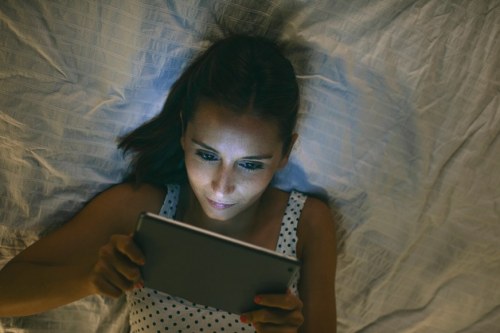When it comes to tips for better sleep, the advice you’re likely to hear over and over again is to put away the electronics. By now, the words “blue light” are almost synonymous with “good luck falling asleep tonight.” But over time, smart devices have become even smarter. Now, virtually (so to speak) every phone, tablet, and computer has a “night shift” mode, with warmer hues—and no blue light. Problem solved, right?
According to a new study by the Rensselaer Polytechnic Institute, the difference might not be as stark as many have believed. The research found that both light forms affect melatonin the same way. “Basically having the night shift at any mode is not statistically significantly different than not using it,” Mariana Figueiro, director of Rensselaer’s Lighting Research Center and one of the study’s lead researchers tells Fast Company.
“Basically having the night shift at any mode is not statistically significantly different than not using it.” —Mariana Figueiro, a lead researcher on the study
There’s another reason why it might not make a difference: a psychological one. If you were on your phone, tablet, or computer right before hoping to fall asleep, your mind may be preoccupied with whatever it was you were absorbed in—whether it’s work emails, your Facebook feed, or a YouTube video.
But the psychological coin flips the other way too: Figueiro says switching a device to night shift mode can help if you believe it does. If you have it in your mind as “this little habit will help me sleep like a baby wrapped in cashmere swaddling clothes,” then, hey, it just might.
But if you really want to play it safe, you might be better off settling down with a good old-fashioned book—you know, with actual paper pages. And FYI we have some suggestions…
The road to better sleep also includes eating these foods pre-bedtime. Plus, five habits a sleep doctor follows for perfect zzz’s every night.
Sign Up for Our Daily Newsletter
Get all the latest in wellness, trends, food, fitness, beauty, and more delivered right to your inbox.
Got it, you've been added to our email list.











